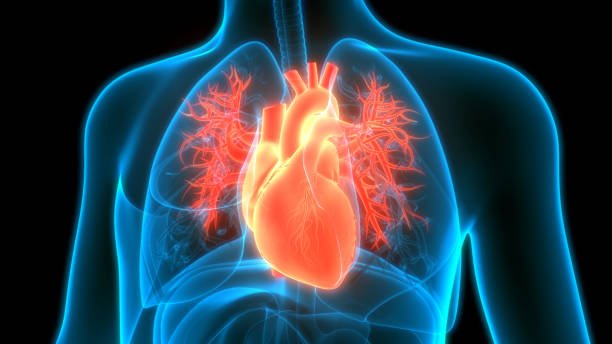
What is Heart Age? At What Age Can a Heart Attack Occur? Detailed Explanation of Heart Age Calculation and Risk
We know that people have actual age and physical age. For example, the actual age is 40 years old, but the body is already 53 years old. The heart actually has an age standard. The higher the heart age, the higher the chance of stroke or heart disease. In recent years, more and more young people have suffered from coronary heart disease or myocardial infarction before the age of 30. It can be seen that youth is no longer a guarantee of good health. Even people in their early 20s who have just entered the workplace may still have the heart of a 70-year-old .
In this article we will help you understand what heart age is and how to calculate your own heart age to help you control your heart health and reduce the risk of cardiovascular disease.
What is cardiac age?
Heart age refers to the age of the heart and blood vessels that are affected by cardiovascular disease risk factors. The assessment method usually includes the following risk factors:
- Age:
The older you are, the higher the risk of heart disease; elderly people aged 65 to 75 are seven times more likely to suffer from heart disease than young adults aged 35 to 44. - Gender:
Statistically, men are more likely to suffer from cardiovascular disease and develop it at an earlier age; however, when women enter menopause and estrogen secretion decreases, the chance of cardiovascular disease increases significantly, and the mortality rate from heart disease increases by 1 every 5 years. times. - BMI:
Obesity can bring about comprehensive effects, such as high cholesterol, high blood pressure and high blood sugar, which increase the risk of cardiovascular disease. - Blood pressure:
Blood pressure affects heart health. In addition to damaging kidney function, long-term high blood pressure can also reduce heart function. - Cholesterol:
Excessive cholesterol can cause blood vessel blockage and increase the risk of coronary heart disease, hypertension and stroke. - Smoking:
Nicotine stimulates the sympathetic nerves, speeds up the heartbeat, increases blood pressure, and constricts the cardiac blood vessels, leading to cardiac hypoxia. It also promotes the deposition of cholesterol on the blood vessel walls. - Diabetes:
Diabetic patients are twice as likely to suffer from heart disease as normal people; high blood sugar will glycate arterial wall proteins and accelerate the deposition of fatty plaques in the coronary arteries of the heart.

Here are 3 English versions of heart age calculators:
- NYC Health – Calculate Your Heart Age (New York City, USA)
- NHS – What’s your heart age? (UK NHS website)
- Heart Foundation – Heart Age Calculator (Australian Heart Association)
Link between heart age and cardiovascular disease
According to the U.S. Centers for Disease Control and Prevention (CDC):
- One in every two men has a heart age that is 5 or more years older than their actual age.
- 2 out of 5 women have a heart age that is 5 or more years older than their actual age.
- More than 75% of cases of myocardial infarction and stroke are caused by risk factors that increase cardiac age.
For example, if a 45-year-old man smokes and suffers from high blood pressure (systolic blood pressure higher than 150mmHg for a long time), diabetes, and obesity (BMI higher than 23), his heart age will be as high as 75 years old. To put it another way, Even if a 50-year-old woman does not smoke but has a BMI higher than 32 and suffers from high blood pressure and diabetes, her heart age will suddenly increase to 85 years old.
Heart age is closely related to cardiovascular health. In addition to increasing the risk of cardiovascular diseases such as arrhythmia, arteriosclerosis, and coronary heart disease, increasing heart age also increases the risk of kidney disease because the heart and kidneys are closely connected.
In addition, people under the age of 30 cannot ignore the impact of diet and work and rest just because they are young. Clinically, many young people suffer from coronary heart disease or myocardial infarction due to long-term consumption of high-fat and high-sugar foods, little exercise and abnormal work and rest, especially those with diabetes or high blood pressure, or even kidney disease. If you suffer from the disease, you should pay special attention to it.












